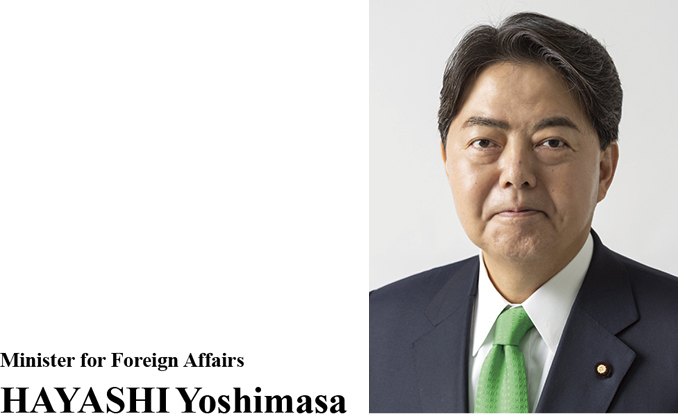
In 2021, our assistance to fight against COVID-19 remained one of the major pillars of Japan’s international cooperation following the previous year. Japan has implemented comprehensive vaccine-related assistance, not only by providing vaccines but also by supporting the development, manufacturing, transportation, and vaccination toward the containment of COVID-19 worldwide. Japan announced a total of $1 billion in financial contribution for the COVAX Facility to support equitable access to vaccines including in developing countries. Japan also provided vaccines, starting from Asia and expanded to Africa and the Latin America. Japan is ready to provide a total of 60 million vaccine doses of which approximately 42 million doses were already delivered by the end of February 2022. Japan’s “Last One Mile Support” to improve cold chains for delivery of vaccines to vaccination facilities has been highly valued and appreciated by countries around the world. These efforts are featured in Part I of this year’s White Paper.
In addition, as the international community is confronted with an era-defining change, challenges to universal values such as the rule of law and the rules-based international order, have become increasingly severe. In light of this, efforts to realize a “Free and Open Indo-Pacific (FOIP)” is increasingly important. Due to the COVID-19 pandemic, people in vulnerable situations worldwide have suffered a major blow and human security is threatened. In Part II of this White Paper, we introduce our efforts toward achieving the Sustainable Development Goals (SDGs), which are an important compass to lead the world to a better future. In addition, we, with the realization of FOIP in mind, also feature Japan’s efforts including on quality infrastructure, that are being implemented in coordination with the United States, Australia, India, ASEAN, Europe, and others. In regard to climate change, Part II also covers our commitments to realizing a decarbonized society, and support including for the introduction of renewable energy, in cooperation and collaboration with related countries, based on the outcomes of the negotiations at COP26.
In 2021, major changes occurred in the environment surrounding Japan’s international cooperation, including the coup d’état in Myanmar in February and the sudden changes of the situation in Afghanistan since August. In Part III, we introduce Japan’s efforts for each region, including emergency assistance to meet the humanitarian needs arising from such shifts in international situation.
In recent years, development issues have become more diverse and complex, and the state of global financial flows is changing. In this context, the role of non-ODA finance and its activities has been increasing, and cooperation with various stakeholders has become vital. Part IV introduces how Japan’s development cooperation has been implemented under multifaceted collaboration and what roles it has been playing worldwide, through the voices and actual cases on the field, such as Japanese companies, NGOs, local public entities, and universities, as well as JICA overseas cooperation volunteers and Japanese personnel at international organizations.
Japanese people’s understanding, cooperation, and collaboration are essential for the implementation of Japan’s development cooperation. We have made efforts for the White Paper on Development Cooperation 2021 to be reader-friendly, using many columns and photographs. It is my sincere hope that this White Paper will help deepen your understanding.

